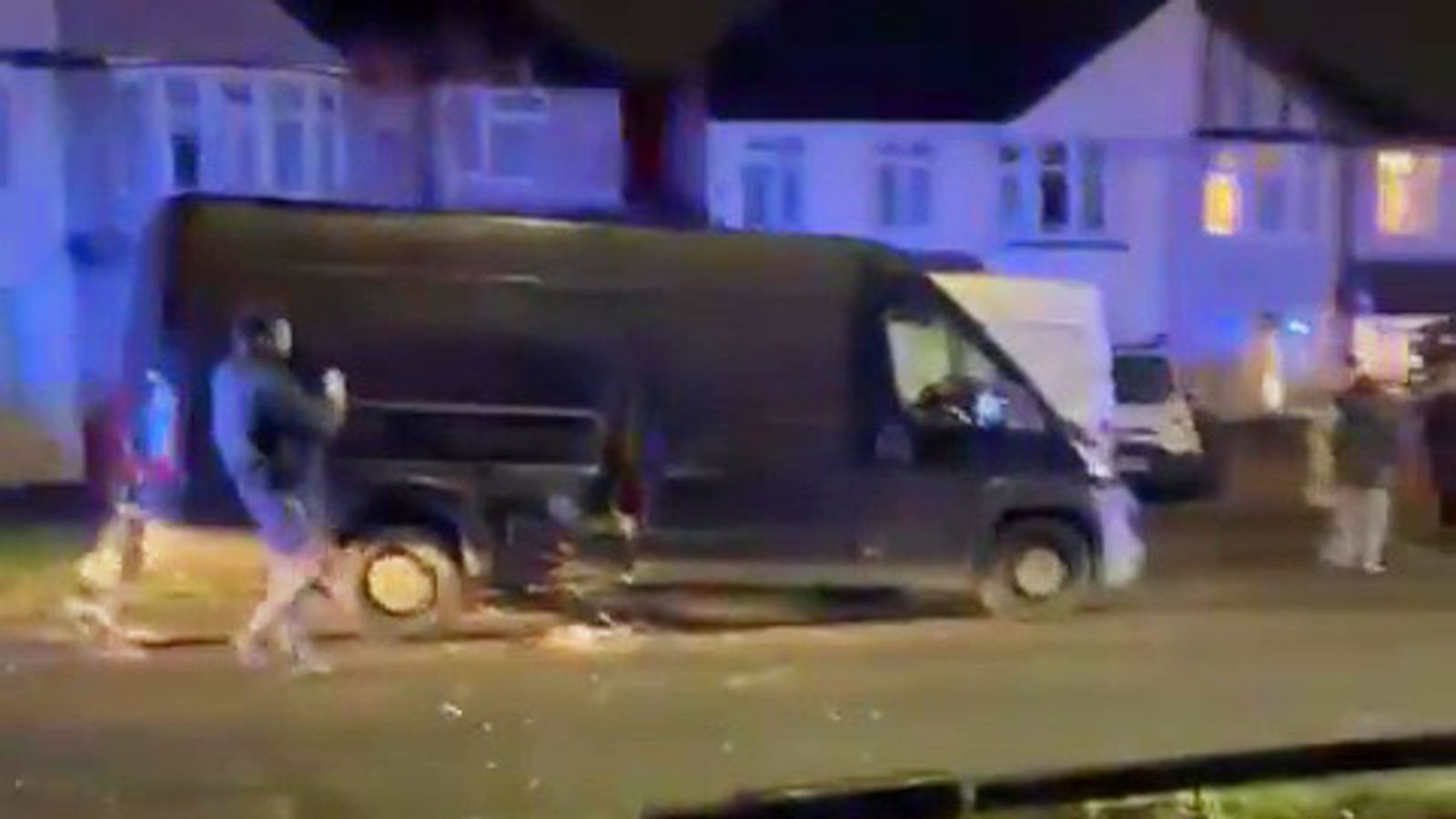A blast that damaged an Ultra Low Emission Zone (ULEZ) camera and nearby vehicles in southeast London was caused by an improvised explosive device, the Metropolitan Police believes.
The camera was struck in Sidcup on Wednesday evening just hours after it had been installed.
Counter Terrorism Command officers, including explosives experts, are leading the criminal investigation but the incident is not currently being treated as terrorism.
Police believe it was a deliberate act and was carried out using a “low-sophistication” IED.
Officers said the camera had been cut down at around 5.15pm and members of the public reported the explosion in Willersley Avenue around 90 minutes later at 6.45pm.
A van and a bus were also damaged in the explosion. No one was injured, according to police.
One resident said the blast was “deafening”.
Hanukkah: Police provide more protection to Jewish community during Festival of Lights
Teacher ‘rained punches’ down on 10-year-old boy, father claims
Woman shot dead in east London named
Debris was strewn across the road following the incident.
Jasmine, who lives in the area and was driving nearby at the time, told Sky News: “The explosion was deafening and at first I thought it was some sort of bomb that had gone off.”
She said a van parked nearby was “damaged quite badly” and her car was “covered in debris”.
“It was lucky there was no one walking by at the time,” she said.
No arrests have been made in relation to the incident.
Officers urged anyone with information to contact them, adding “anyone who sees anyone or anything suspicious by or on a ULEZ camera should not approach and should contact police”.
The London Fire Brigade also attended. Sky News has contacted Transport for London, which operates the cameras, for a comment.
The Ultra Low Emission Zone, introduced with the aim of improving air quality in London, was expanded on 29 August.
Read more:
London’s low emission zones have improved air quality – study
It means motorists who drive heavily polluting vehicles, usually older or diesel cars, have to pay a £12.50 daily fee to drive in the zone. The cameras record the movements of vehicles into and around the charging zone.
The move was heavily criticised when it was expanded, but London mayor Sadiq Khan said it was a “difficult” but “vital” decision.
Hundreds of attacks on the cameras have been reported over the last seven months, police have said.







